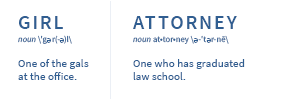From The Atlantic authored by Rachel Louise Snyder:
“I met a woman once whose husband threw golf balls in front of her face as she drove down the highway, in an effort to both terrify her and establish his dominance and fearlessness. Then there was the teenager who told me how her father used to sit at the kitchen table and spin his pistol around as a reminder of his power and authority; he kept his loaded guns hanging on the wall like art. In researching my new book, No Visible Bruises, I met a woman whose husband had brought home a rattlesnake and kept it in a cage, threatening her with its presence to ensure her compliance.
The English language has a name for this kind of viciousness, a catchall phrase for this particular brand of human meanness: domestic violence.
But as a term, domestic violence is wholly inadequate, failing to capture the nightmare that people experience. For other kinds of terrible events, English has terms, dark and foreboding, that vividly communicate the situations they describe. Genocide, for example. Crimes against humanity. Holocaust. They are all abstractions—fundamentally just a bunch of phonemes cobbled together—that nevertheless conjure startling images. As I type these words, pictures form in my mind: starvation, disease, torture. They are a kind of shorthand for the worst that humans inflict on one another.
Domestic violence does little of this. It doesn’t convey the psychological terror of knowing that a snake could be slipped into bed while you’re sleeping, or the emotional betrayal of having a loaded gun toyed with as a threat from someone who has complete control over your life. At its worst, domestic violence suggests complicity in one’s victimhood. One chooses one’s partner, after all.”
Read the full story by FOLLOWING THE LINK

